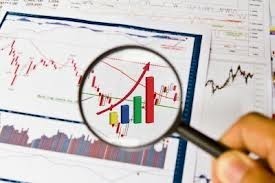Key Indicators for Bulgaria (as of 06.07.2020)
According to the National Statistical Institute business inquiries in June 2020, the industrial confidence indicator improved by 7.4 percentage points in comparison with May 2020.
In April 2020 the working day adjusted Industrial Production Index fell by 15.7% in comparison with the same month of 2019 (preliminary data). On annual basis in April 2020 Industrial Production Index calculated from working day adjusted data fell in the manufacturing by 18.5%, in the electricity, gas, steam and air conditioning supply by 10.9%, while the production went up in the mining and quarrying industry by 9.3%.
In April 2020 working day adjusted data showed a decrease by 15.0% in the construction production, compared to the same month of 2019. On an annual basis in April 2020, the decrease of production in construction, calculated from working day adjusted data, was determined from the negative rate in the building construction, where the drop was by 17.3% and in the civil engineering - by 11.7%.
According to the preliminary data the produced Gross Domestic Product (GDP) at current prices for the first quarter of 2020 is 25 575 million BGN. GDP per person is 3 678 BGN. GDP is 14 414 million USD and 2 073 USD per person using the average for the quarter exchange rate of 1.774328 BGN for 1 USD. According to the seasonally adjusted data, the GDP growth rate in the first quarter of 2020 is 2.4% compared to the same quarter of the previous year and 0.3% compared to the fourth quarter of 2019.
Private consumption
In April 2020, the total consumer confidence indicator decreases by 17.4 percentage points compared to its level 3 months ago, which is due to the decreased confidence of both rural and urban inhabitants by 18.5 and 17.0 percentage points respectively. The consumers’ opinions about the development of the general economic situation in the country over the last 12 months and their forecasts over the next 12 months are more pessimistic compared to the previous survey as a result of which the balance indicators decrease by 23.9 and 18.7 percentage points respectively.
In April 2020, the working day adjusted turnover in ‘Retail trade, except of motor vehicles and motorcycles’ fell by 19.9% in comparison with the same month of the previous year. In April 2020 compared to the same month of 2019, decline of turnover was observed in the ‘Retail sale of automotive fuel in specialised stores’ (by 40.3%), in the ‘Retail sale of non-food products except fuel’ (by 22.9%) and in the ‘Retail sale of food, beverages and tobacco’ (by 7.9%).
During the first quarter of 2020, 73.1% of GDP were spent for individual consumption. According to seasonally adjusted data, the indicator increased by 3.7% compared to the respective quarter of 2019.
Investment
In the period January - April the average capacity utilization in industry decreased by 10.1 percentage points and it reached 67.9%.
The relative share of gross fixed capital formation in GDP in the first quarter of 2020 is 13.9%. According to seasonally adjusted data that indicator increased by 1.2% in real terms compared to the same period of the previous year.
Labour market
In the first quarter of 2020 there were 3 107.2 thousand employed persons aged 15 years and over, of whom 1 667.1 thousand men and 1 440.1 thousand women. The share of employed persons in the total population aged 15 years and over was 52.4% (58.7% for men and 46.7% for women).
In the first quarter of 2020 there were 148.9 thousand unemployed persons, of whom 86.0 thousand (57.8%) men and 62.9 thousand (42.2%) women. The unemployment rate was 4.6%, 4.9% and 4.2% for men and women respectively. In comparison with the first quarter of 2019, the unemployment rate went down by 0.4 percentage points, registering the same decrease for men and women.
In the first quarter of 2020 the total hourly labour cost (preliminary data) rose by 10.2% compared to the first quarter of 2019. The total hourly labour cost grew by 9.0% in industry, by 9.2% in services and by 8.1% in construction.
According to the NSI business inquiries in June 2020 18.6% of the industrial enterprises pointed out the labour shortage as a factor limiting their activity.
In March 2020 the average wage and salary was BGN 1 321 and rose by 1.0% compared to the previous month and by 5.9% compared to March 2019.





